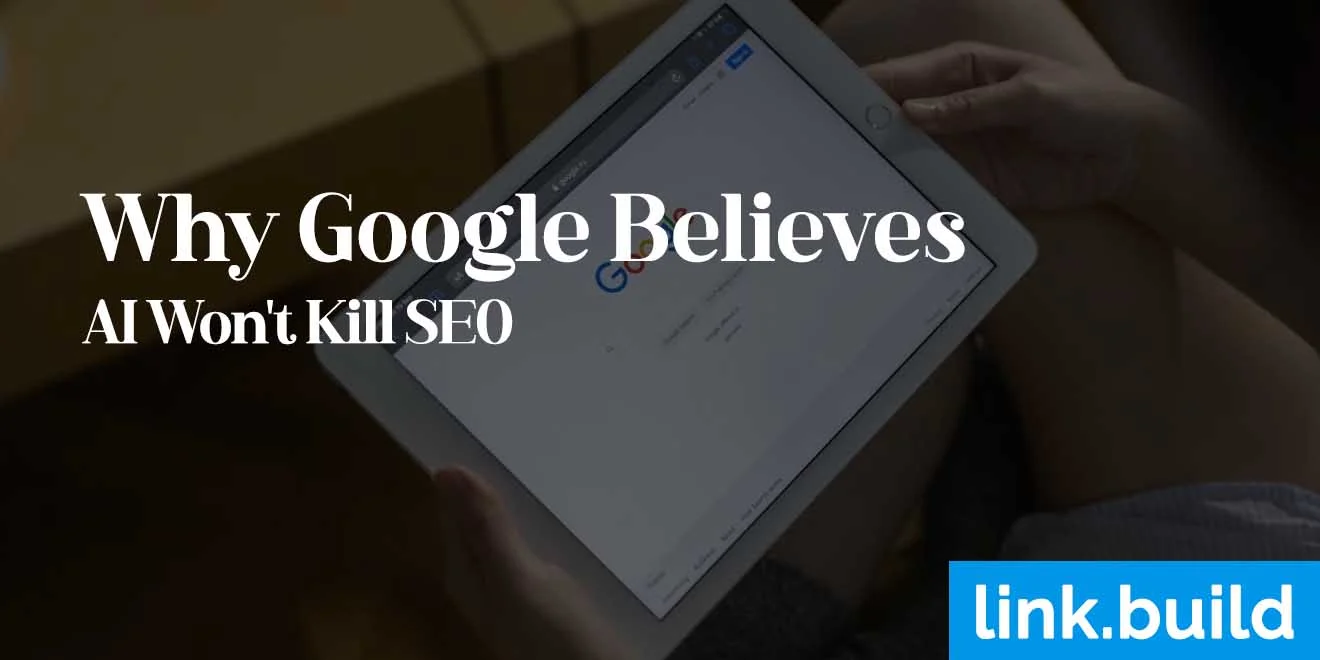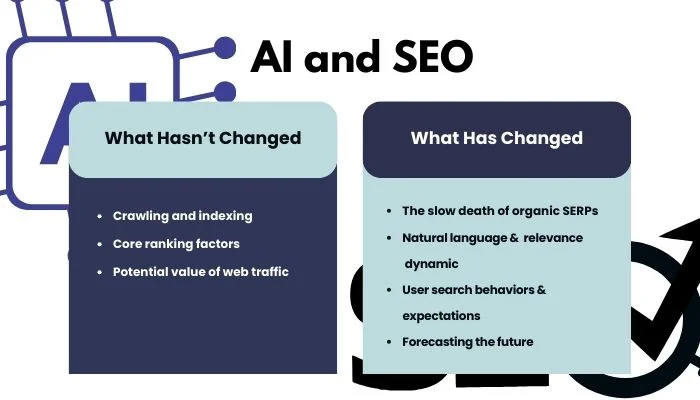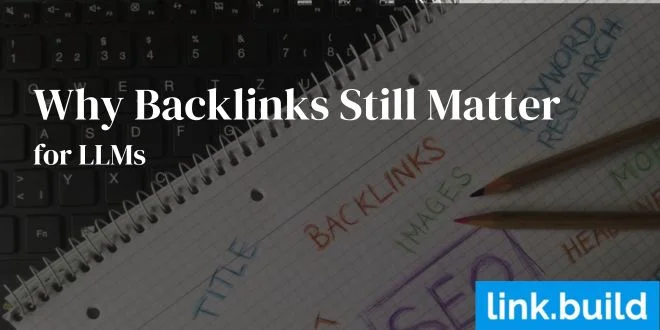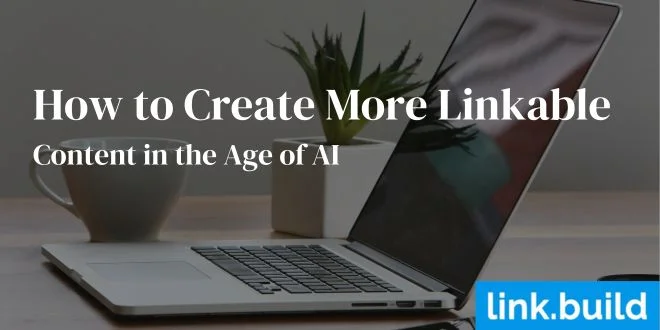Why Google Believes AI Won't Kill SEO

SEO is dying! SEO is dying! And the sky is falling too!
If you're like us, you get a little tired of seeing a constant influx of articles about which parts of digital marketing are dying, especially when they seem to follow a repetitive conveyor belt for literal decades.
In fact, we can remember when people were talking about how the panda update was going to kill SEO.
For you newcomers, that was 14 years ago.
Today, the “SEO is dying” crowd have latched onto AI as the latest search optimization nemesis. And to be fair, they have some valid points.
But recently, Google Search Analyst Gary Illyes offered some insightful commentary that reflects how the Google team sees this dynamic.
And put simply, they don’t see the death of SEO anytime soon.
Mass Speculation on AI and Its Influence on SEO
It's no wonder why people are speculating about how AI might cause the death of SEO.
In the last few years, we've seen an explosion of generative AI tools capable of providing detailed, thoughtful, and personalized answers for almost any conceivable user query.
We've also seen search engines, most notably Google, incorporating AI into search results. For many years, Google has been using AI as part of its search algorithm, using it to parse semantic queries and provide better results. But now, AI is contributing to the search engine results pages (SERPs) themselves, potentially jeopardizing the value of organic rankings.
With fundamentally new search dynamics in play, some search optimizers have felt a figurative tightening noose around their necks.
But the folks over at Google don't seem rustled.
Gary Illyes’s Recent Comments
During an appearance on the podcast Search Off the Record, Gary Illyes commented on the potential future of SEO now that AI is in play. He said, “I mean, SEO has been dying since 2001, so I’m not scared for it. Like, I’m not. Yeah. No. I’m pretty sure that, in 2025,the first article that comes out is going to be about how SEO is dying again.”
Primarily, he's making light of recent assertions that SEO is dying because of AI – and it’s because people have relied on a revolving door of threats to sensationalize the potential future of the SEO industry. SEO, and digital marketing more broadly, is notoriously volatile and constantly changing, so it only makes sense that people might constantly fear an existential risk on the horizon.
But Illyes goes a step further than this, explaining that the AI Overviews in Google aren't necessarily going to poach organic traffic or undermine the power of earning organic search results.
Let's dig into that idea.

AI and SEO: What Hasn’t Changed
We'll start by looking at some things that haven't changed.
- Crawling and indexing. Realistically, processes like crawling and indexing haven't changed at all. Google still explores all the corners of the web using the same processes, so if your content was discoverable and indexable before, it's still going to be discoverable and indexable.
- Core ranking factors. Similarly, there haven't been any massive changes to how Google evaluates online content for the sake of ranking. You still need links to build your authority. You still need relevance via keywords and substantive content. You still need to make sure your website is in good technical standing. If you do all these things successfully, and better than your competitors, you're going to rank highly in the SERPs, even if there is an AI overview at the top of those pages
- Potential value of web traffic. Even though some websites have seen traffic drop-offs as a result of AI overviews and people using generative AI as a search engine alternative, the potential value of organic search traffic is still enormous. People still navigate the web using search engines, and if they're looking for products or services like yours, searching is still one of the best ways to find you.
AI and SEO: What Has Changed
There have been several things that have changed as a result of AI, however.
- The slow death of organic SERPs. Why would you click through to a website when you have the answer you're searching for right in front of you? That's the question millions of search users have been asking. Although there are still several types of queries that lead people to websites eventually, it's increasingly common for people to lean on AI instead of navigating organic SERPs.
- Natural language and the relevance dynamic. AI has changed how Google “understands” natural language search queries, and accordingly, content writers and search optimizers have had to adjust their approaches. Keyword stuffing was never a great strategy, but today, it's basically dead. And giving people the content they want is, in most contexts, harder than ever.
- User search behaviors and expectations. You have to consider user behavior in your SEO strategy. Today, it's more important than ever. You might be able to reach rank one for a given user query, but if that query is the type that would lead a person to simply browse an AI answer, your high rank is practically meaningless. Search optimizers everywhere are scrambling to better understand and adapt to modern user search behaviors.
- Forecasting the future. AI certainly hasn't killed SEO, and if nothing changes, SEO can persist indefinitely. But many search optimizers aren't concerned with today; they're concerned with what might happen years from now. There are simply too many variables to make any concrete predictions about how this might develop from here, but digital marketers are certainly reasonable to consider a future in which AI does render organic SERPs functionally obsolete.
Is Google Out of Touch?
You can justify the claim that the “SEO is dying” crowd is exaggerating, or that people have overestimated the impact that AI has had on search. But we've also seen a lot of changes to the search world in the past few years, and it's not wrong to think that there will be even more coming in the future.
Could it be that Google is a bit out of touch when it comes to the SEO community or collective expectations about the future of AI?
Perhaps. But as with most matters related to SEO and digital marketing, we're best served taking everything with a grain of salt and adapting as best we can as we continue to learn more.
Evolving SEO Standards
If there's one big take away from all the commentary, it's this: SEO is constantly changing. Sometimes, it changes for the better, and other times, it changes for the worse. None of these changes have caused the death of SEO, and the changes have been so gradual that we've always had time to adapt. AI hasn't yet fully taken over, so it's reasonable to suspect that the best course of action is to simply remain aware, adaptable, and ready for whatever happens next.
We get it.
Navigating the new terrain of SEO in the world of AI is tough.
But things get much easier when you’ve got a team of experts backing you.
We’re here for all of it.
So if you’re interested in getting better SEO results, we’d love to hear from you.
Reach out today!


.svg)



